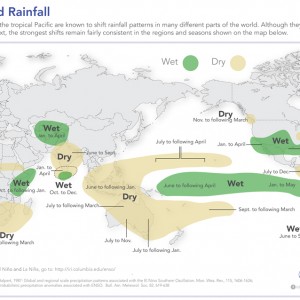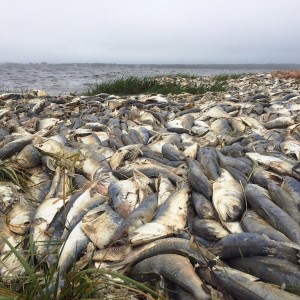The Stream, November 4: Antarctic Ice Sheet Precarious If Melting Continues
The Global Rundown |
Current rates of melting in Antarctica could trigger a process that would eventually collapse the West Antarctic ice sheet, a new study found. Countries that are the most vulnerable to climate change are struggling to spend climate finance money on adaptation projects, and nearly 40 percent of Americans are not very worried about climate change. A rare cyclone brought flooding to Yemen. Ontario industries are not paying enough for water, according to the province’s environment commissioner, the U.S. Senate voted down a bill to repeal the new clean water rule, and scientists hope a new tool will facilitate handwashing without soap.
“Countries that are most in need of adaptation finance are also those that are least able to spend it.”–Louise Whiting, an analyst for international charity WaterAid, on the majority of climate finance pledged by developed countries that has yet to be spent on projects in the countries most vulnerable to climate change. (Reuters)
By The Numbers |
38 percent Proportion of Americans who are not very worried about climate change, even if they believe it is occurring, according to a poll from the Associated Press-NORC Center for Public Affairs Research. Associated Press
$2.84 Cost per million liters of water paid by industrial users in Ontario, less than $10 for the amount of water needed to fill an Olympic pool, according to a report by the province’s environmental commissioner. Toronto Star
57-41 Vote in the U.S. Senate denying a bill that would repeal the Environmental Protection Agency’s new clean water rule, which the majority of states say is a federal overreach. The Hill
Science, Studies, And Reports |
Current rates of melting in Antarctica over 60 years could precipitate the eventual collapse of the West Antarctic ice sheet, according to a study by the Potsdam Institute for Climate Impact Research. In a process taking thousands of years, the melting could cause sea levels to rise by three meters. Bloomberg
Scientists have developed a device that uses ultrasound, bubbles, and cold water to clean more effectively and without soap. The researchers say their goal is to make handwashing faster and reduce the need for soaps and detergents, potentially aiding in the prevention of antibiotic and anti-microbial resistance. Reuters
On The Radar |
An unusual cyclone in the Arabian Sea made landfall in Yemen Tuesday, and 1.4 million people are in need of humanitarian aid, according to the United Nations. Floods inundated cities in the country, which has been struggling through a water crisis amid its civil war. Reuters
A news correspondent for Circle of Blue based out of Hawaii. She writes The Stream, Circle of Blue’s daily digest of international water news trends. Her interests include food security, ecology and the Great Lakes.
Contact Codi Kozacek







Leave a Reply
Want to join the discussion?Feel free to contribute!